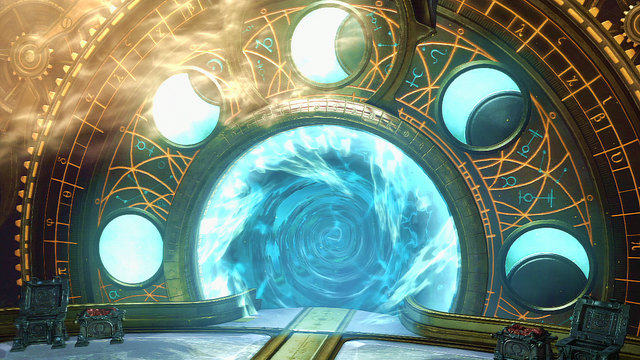
Welcome To The Game Ii Wiki
A player announces her loss of The Game at in July 2008.Years activeUnknown (see )Playing timeIndefinite (ongoing)Random chancePartiallySkill(s) requiredThe Game is a where the objective is to avoid thinking about The Game itself. Thinking about The Game constitutes a loss, which must be announced each time it occurs. It is impossible to win most versions of The Game. Depending on the variation of The Game, the whole world, or all those aware of the game, are playing it all the time. Tactics have been developed to increase the number of people aware of The Game and thereby increase the number of losses.
Contents.GameplayThere are three commonly reported rules to The Game:. Everyone in the world is playing The Game.
The sequel to the 2016 Welcome to the Game, developed by Reflect Studios and released in April 3. The story follows Clint Edwards, an investigative reporter searching for a missing woman. His one and only lead is the Shadow Web, the deepest. Space rpg 3 wiki.
(This is alternatively expressed as, 'Everybody in the world who knows about The Game is playing The Game' or 'You are always playing The Game.' ) A person cannot refuse to play The Game; it does not require consent to play and one can never stop playing.
Whenever one thinks about The Game, one loses. Losses must be announced. This can be verbally, with a phrase such as 'I just lost The Game', or in any other way: for example, via.
Some people may have ways to remind others of The Game.The definition of 'thinking about The Game' is not always clear. If one discusses The Game without realizing that they have lost, this may or may not constitute a loss. If someone says 'What is The Game?' Before understanding the rules, whether they have lost is up for interpretation.
According to some interpretations, one does not lose when someone else announces their loss, although the second rule implies that one loses regardless of what made them think about The Game. After a player has announced a loss, or after one thinks of The Game, some variants allow for a between three seconds to thirty minutes to forget about the game, during which the player cannot lose the game again.The common rules do not define a point at which The Game ends. However, some players state that The Game ends when the announces on television that 'The Game is up.'
StrategiesStrategies focus on making others lose The Game. Common methods include saying 'The Game' out loud or writing about The Game on a hidden note, in graffiti in public places, or on banknotes.Associations may be made with The Game, especially over time, so that one thing inadvertently causes one to lose. Some players enjoy thinking of elaborate pranks that will cause others to lose the game.Other strategies involve merchandise: T-shirts, buttons, mugs, posters, and bumper stickers have been created to advertise The Game. The Game is also spread via social media websites such as.
A woman holds up a sign reading 'You Lose The Game'.The origins of The Game are uncertain. In a 2008 news article, Justine Wettschreck says The Game has probably been around since the early 1990s, and may have originated in Australia or England. One theory is that it was invented in in 1996 when two British engineers, Dennis Begley and Gavin McDowall, missed their last train and had to spend the night on the platform; they attempted to avoid thinking about their situation and whoever thought about it first lost. Another theory also traces The Game to London in 1996, when it was created by Jamie Miller 'to annoy people'. Journalist Mic Wright of The Next Web recalled playing The Game at school in the late 1990s.However, The Game may have been created in 1977 by members of the when attempting to create a game that did not fit in with. A blog post by Paul Taylor in August 2002 described The Game; Taylor claimed to have 'found out about the game online about 6 months ago'.
This is the earliest known reference on the internet.The Game is most commonly spread through the internet, such as via Facebook or Twitter, or by word of mouth. See also:The Game is an example of ironic processing (also known as the 'White Bear Principle'), in which attempts to suppress or avoid certain thoughts make those thoughts more common or persistent than they would be at random. There are early examples of ironic processing: in 1840, played the 'white bear game' with his brother, where he would 'stand in a corner and not think of the white bear'. Mentioned the same game in 1863 in the essay. ReceptionThe Game has been described as challenging and fun to play, and as pointless, childish, and infuriating. In some, such as and, and several schools, The Game has been banned.The 2009 poll was most likely by the hacktivist group, so that the top 21 people's names formed an for 'marblecake also the game', referencing The Game.
Boyle, Andy (19 March 2007). The Daily Nebraskan. Retrieved 18 May 2008. ^ Rooseboom, Sanne (15 December 2008). Archived from on 15 December 2008.
^. 3 December 2008. Retrieved 20 May 2017. 3 October 2007. ^ Montgomery, Shannon (17 January 2008).
^ Kaniewski, Katie (1 March 2009). Los Angeles Loyolan. Retrieved 27 March 2009. ^.
3 December 2008. Retrieved 6 July 2014.
^ Fussell, James (21 July 2009). Archived from on 24 July 2009. Wettschreck, Justine (31 May 2008). Retrieved 11 November 2014.
Wright, Mic (13 April 2015). The Next Web. Retrieved 16 February 2016.
10 August 2002. From the original on 14 June 2008. (2008). Archived from on 6 July 2014.
Dostoyevsky, Fyodor (1863). P. 49. Schonfeld, Erick (27 April 2009). Retrieved 2 November 2014.
30 April 2009. Archived from on 11 January 2012. Retrieved 2 November 2014.External links.